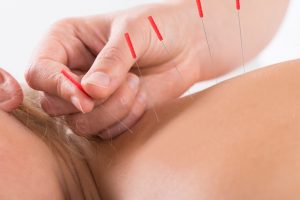
The goal of acupuncture is to unblock a person’s energies. These “blocks” in energy are what can lead to various illnesses and pains. The needles are inserted with great care and are rarely felt by the individual receiving them.
Health and wellness expert Caleb Backe explained, “Acupuncture is the practice of manipulating the body’s channels of chi, the energy which governs us and our body/mind connection. In Chinese medicine, the body’s organs are all connected in a kind of circle. If there [is] a blockage and difficulty in one area, the organs which receive treatment will often be the ones which come before and after the blockage, and not in the place of the blockage itself.”
So how can acupuncture help with a low libido? Well, an acupuncturist will first aim to try and find the underlying cause of the low libido to determine where the needles should be inserted to unblock the energy.
Low libido is caused by a slew of different things including relationship issues, loneliness, and hormonal imbalances. Acupuncture is used to relieve these blocked energies to restore flow.
Along with sticking you with needles to improve energy flow, the acupuncturist may also provide you with lifestyle tips in order to further improve your libido.
Although acupuncture is safe, it isn’t always effective. Low libido may indicate a problem with a person’s mental state or the cause may be unclear.
If you’re looking for a different tactic to improve your libido, you may want to work with a professional acupuncturist as a means of improving it.
Also read: